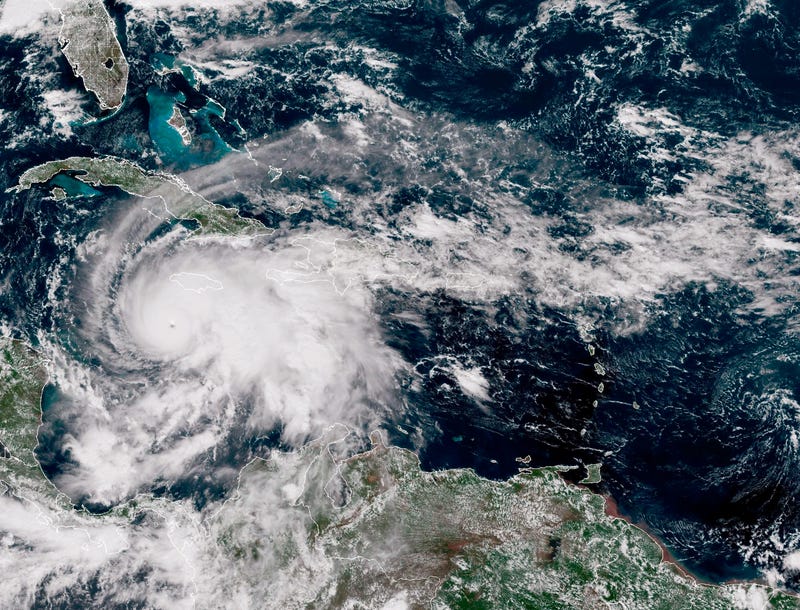Local Caribbean groups are uniting to send aid to Jamaica.
This comes amid reports that Hurricane Melissa has claimed several lives and caused hundreds of millions of dollars in damage to the Caribbean island just as it is making landfall on Tuesday.
James Byron with Twin Cities Carifest says he and other organizations will be taking in donations and supplies across several locations around the Twin Cities and gave some examples.
"Things they're looking for, things like blankets, tents, generators, and things like that," Byron says.
He says the thing that's needed most right now are financial donations to support the effort, and it will take more than food and equipment to help those impacted.
He says those wanting to donate supplies and food can do so at one of the three following locations: Galaxy Foods International in Richfield, Pimento Jamaican Kitchen on Nicollet Ave in Minneapolis and Caribbean American Cultural Center in North Minneapolis.
You can also visit carifest.org and select the Caribbean Disaster Relief Fund.
Here is what to know about the storm:
A record storm for Jamaica
Melissa was a Category 5 hurricane, the highest level, when it made landfall Tuesday in Jamaica. It was the strongest to hit the island since recordkeeping began 174 years ago.
It is the fifth most intense Atlantic basin hurricane on record by pressure and the strongest to make landfall since Hurricane Dorian in 2019, according to hurricane expert Michael Lowry. It is “a worst-case scenario unfolding for Jamaica,” he said.
The U.S. National Hurricane Center warned the situation is “extremely dangerous” and “life-threatening,” and urged Jamaican residents to remain sheltered until the life-threatening conditions pass. The NHC said Melissa is “one of the most powerful hurricane landfalls on record in the Atlantic basin.”
U.N. agencies and dozens of nonprofits had food, medicine and other essential supplies prepositioned as they awaited a distribution rush after the storm.
Other Caribbean nations at risk
The NHC warned that catastrophic flash flooding and landslides also are possible in Cuba and Hispaniola, the island which Haiti and the Dominican Republic share.
Cuban officials said they were evacuating more than 600,000 people from the region, including Santiago, the island’s second-largest city.
The NHC warned of 5 to 10 inches (13 to 26 centimeters) of rainfall with the potential for flash flooding in the southeastern Bahamas and the Turks and Caicos on Tuesday and Wednesday. Additional rainfall is expected in southern Hispaniola through Wednesday.

Rapid strengthening linked to climate change
Melissa reached tropical storm status last Tuesday and then became a hurricane on Saturday. Melissa then rapidly intensified into a Category 5 hurricane early Monday morning.
Climate scientists have linked warming ocean temperatures to hurricanes intensifying more quickly. Abnormally warm ocean waters of about 2 to 3 degrees Celsius (3.6 to 5.4 degrees Fahrenheit) above normal helped double Hurricane Melissa’s wind speed in less than 24 hours, scientists said.
Rapid intensification occurs when the maximum sustained winds of a tropical cyclone increase by at least 30 knots or 35 mph (56 kph). Warmer temperatures also give hurricanes fuel to unleash more rain.
Scientists said Melissa is the fourth storm in the Atlantic this year to undergo rapid intensification.
Storms that ramp up so quickly complicate forecasting and make it harder for government agencies and nonprofits to plan for emergencies.
